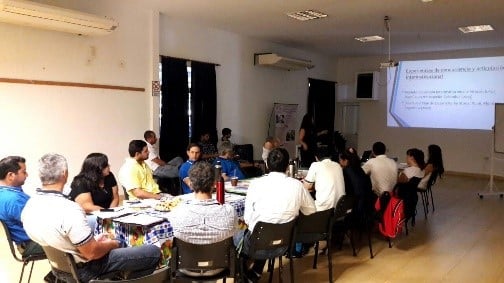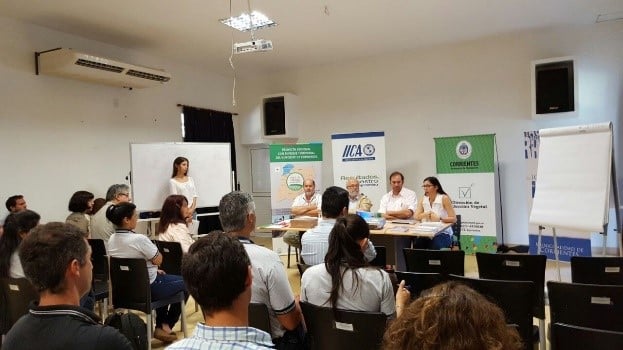In 2015, IICA responded to a request from the Ministry of Production of Corrientes to develop a partnership to improve the competitiveness of the horticultural value chain of Corrientes Green Belt.

The province of Corrientes in Argentina has an area of 88,886 km2 (3.2% of the Argentine continental surface) and a population of 992,595 inhabitants. Corrientes horticultural activity represents 6% of the national horticultural cultivated area and 30% of the value of the national horticultural production.
The “Green Belt “ is the territory located within a radius of 50 kilometers from the capital of Corrientes. In this area, small and medium sized farmers produce tomato, pepper, watermelon, sweet potato, corn, melon, cucumber and basil, among other products sold at the local market.
In 2015, IICA responded to a request from the Ministry of Production of Corrientes to develop a partnership to improve the competitiveness of the horticultural value chain of Corrientes Green Belt.
The first step was to identify the main challenges facing the chain along with potential solutions. The stakeholders identified the need to promote articulation mechanisms within the chain, develop and strengthen producer organizations, expand extension services beyond technological and production aspects, to include topics such as agribusiness and commercialization capabilities and improve phyto-sanitary management. Additionally, actors recognized the importance of reducing the level of post-harvest losses and strengthen marketing channels, to improve the competitiveness of the chain.
The stakeholders agreed to focus efforts on creating an inter-institutional mechanism to support the chain on developing capacity building processes in the following topics: leadership and extension, associativity, business practices, commercialization, added value and post-harvest loss management, Good Agricultural Practices (GAP) and strengthening marketing channels.
The “inter-institutional board for supporting the horticultural chain in Corrientes Green Belt” recently began operating and is working on generating synergies to address critical issues to ensure the confluence of the different support instruments of the participating institutions.

A total of 337 technicians and territorial development agents from 7 institutions strengthened their capabilities to better support producers and producer organizations on topics such as associative processes, leadership, agribusiness and commercialization. In addition, IICA teamed up with the Ministry of Production and Ministry of Education of Corrientes province, to develop and implement a training program for educators of 10 agricultural-technical schools on GAP in five localities.
As a first step to reduce post-harvest losses, IICA and the Ministry of Production of Corrientes recently organized a workshop where a group of 25 chain actors was trained on how to identify weaknesses throughout a value chain that lead to postharvest losses and, at the same time, identify solutions and prepare proposals for improving their efficiency. Considering that chard and lettuce are among the products with highest losses, all practical activities were focused on these products.
In order to improve marketing channels and commercialization, a team of experts from the University of Santiago, Chile, carried out an assessment and provided recommendations on how to improve the functioning of those channels. In addition, a set of innovative instruments and key actions to improve commercialization were identified through a technical visit to Brasilia´s Horticultural Belt in Brazil. Based on the results of these activities IICA and its stakeholders are currently working on the definition and implementation of proposals to solve specific challenges.
IICA will continue working with the Ministry of Production of Corrientes on promoting the competiveness and sustainability of the horticultural value chain to contribute to food security, as well as for generating sustainable commercial opportunities in the Province.
More information: daniel.rodriguez@iica.int
*The opinions expressed in this newsletter are those of the authors and they do not reflect the position of the Institute on the topics presented.
*This post appears in the IICA Delegation in the USA Newsletter – May – June 2017











